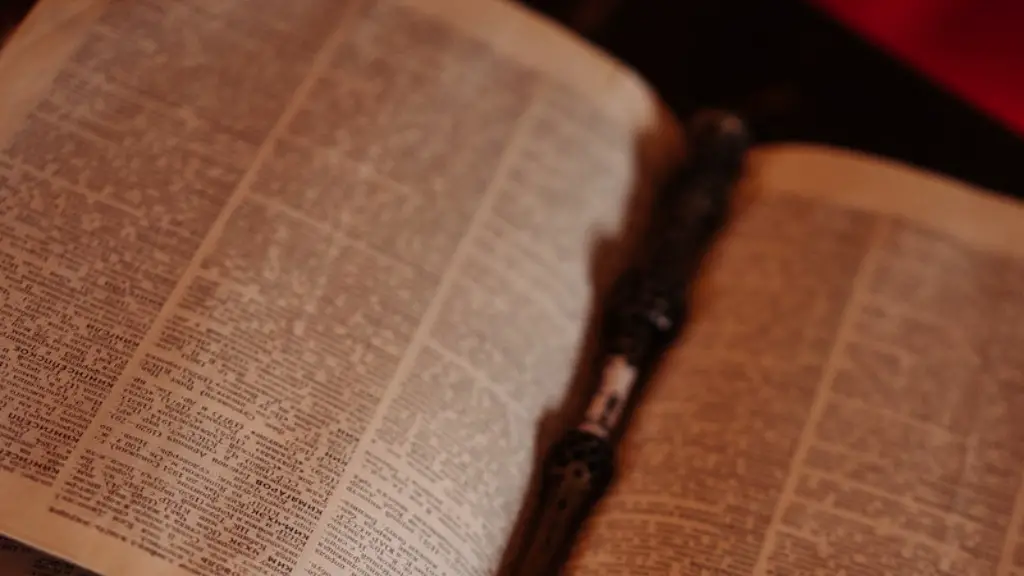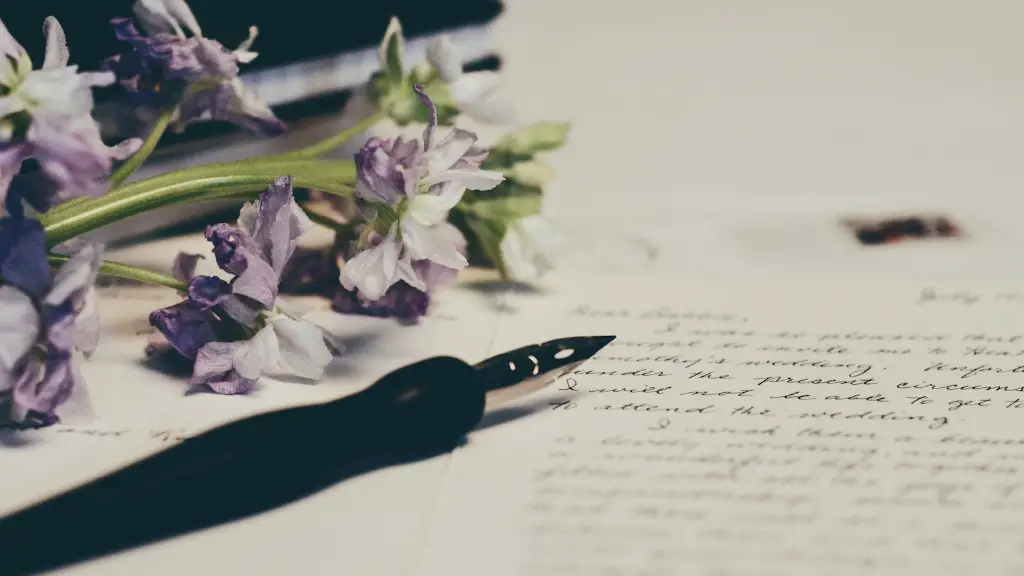Introduction to Poetry
Poetry is a unique form of expression that has been around for centuries. It is often seen as a way to express emotions, to tell stories, and to capture the beauty of language. Unlike prose, which is typically written in sentences and paragraphs, poetry relies on the use of rhythm, meter, rhyme, imagery, symbolism, and metaphors to convey its message and elicit emotion in the reader. It is often seen as an art form, meant to be interpreted in many ways, and with the potential to change and grow over time.
What Makes Poetry Unique?
One of the most significant factors that makes poetry unique is the way it is written and structured. Unlike a novel or article, which are typically written in long, complex sentences, and paragraphs, poetry is made up of short, often ambiguous phrases that are strategically placed to form compelling images and sounds. This allows the poem’s writer to be creative and expressive while still adhering to certain conventions. The best poems will have memorable phrases, display an emotional and symbolic connection to the reader, and may even contain hidden messages and concepts that are not immediately evident.
Another factor that makes poetry unique is its ability to invoke emotion. As opposed to other kinds of writing, poetry can evoke deeper feelings and create powerful connections between the writer and the reader. A successful poem does not necessarily need to explain what it is trying to say. Instead, it might leave its readers with a feeling or image that has been stirring within them, but unable to take shape until confronted with the poem’s words.
Furthermore, the lack of explicit structure in poetry often enables the writer to pursue new ideas and take risks in their writing. This freedom allows for a highly creative and personal exploration of a topic, and the ability to play with different forms, sounds, and ideas. Writers of poetry can seek to reflect on and express their own internal emotions and ideas, as well as reflect on larger social issues. This kind of freedom is something that isn’t necessarily present in other kinds of writing.
Conclusion
Ultimately, poetry is a unique form of expression that utilizes various techniques, language, and structure to evoke emotion, tell stories, and explore complex topics. Poetry relies on rhythm, meter, rhyme, imagery, symbolism, and metaphors to create powerful images and sounds, as well as provoke emotion and understanding in the reader. What makes poetry truly special is its ability to draw the reader in and evoke a deep emotional response, often without having to overtly explain the message of the poem.
A Look at Famous Poets
In order to further explore the unique world of poetry, one must look at the work of some of the most renowned and celebrated poets throughout history. William Shakespeare is perhaps the most well-known English poet, with his works ranging from the romantic tragedy “Romeo and Juliet” to the sonnets “Sonnet 18” and “Sonnet 73”. His works often dealt with themes of destiny, death, and love, while also playing with structure and meter to create arresting images and sounds.
American poet Sylvia Plath is credited with introducing a whole new generation to the genre of confessional poetry. Her work, which dealt with her own personal struggles, as well as critiques of society, inspired many poets to explore their innermost emotions and come to terms with difficult topics. Her most iconic works include “The Bell Jar”, which chronicles her mental health struggles, and “Ariel”, a collection of poems about accepting and eventually embracing death.
Other influential poets include Pablo Neruda, whose passionate and often political writings made him the only Latin American poet to ever win the Nobel Prize in Literature. Emily Dickinson is another famous poet who wrote extensively about nature and death. Her poetry is still highly regarded today, with her works often being used in classrooms to teach students about the foundation of poetry.
Poetry in the 21st Century
Today, poetry is just as popular, if not more so, than ever before. Social media platforms like Instagram, YouTube, and TikTok, offer a platform for poets to share their work and gain wider recognition. This has led to the rise of “Instapoets” such as Rupi Kaur, Nayyirah Waheed, and Yrsa Daley-Ward, who showcase their work on their social media platforms and have become household names.
This new form of poetry can often be characterized by its brevity and directness, as well as its focus on themes of love and heartbreak. While some view this modern type of poetry as lazy and shallow, many argue that its brief and accessible format has created a means for a new generation of writers to engage with poetry and explore its potential.
The Benefits of Poetry
Poetry can be used as a source of comfort and solace, as well as a platform for expression and exploration. Its ambiguity can often give readers the opportunity to interpret its message in a number of ways and draw personal meaning from it. This can be beneficial to those dealing with mental health struggles, as well as individuals looking to explore different kinds of expressions through writing.
In addition, reading and interacting with poetry can help to build one’s vocabulary, grammar, and power of comprehension. Poetry can also be used to increase empathy and understanding, as it often delves into topics that challenge readers to broaden their thinking and expand their perspective. In this sense, poetry can be thought of as a tool for self-discovery and a chance to be vulnerable in a safe and creative environment.
Reimagining Poetry
As the 21st century progresses, new and innovative ways of interpreting poetry have emerged. Spoken word and slam poetry, for example, are popular methods of engaging with poetry. As opposed to traditional methods of writing, spoken word often provides audience members with a more visceral experience, often incorporating music and performance into the poem.
In addition, multimedia and digital poetry have also become popular ways to engage with the genre. Digital and multimedia poetry involves combining written elements with visual, audio and multimedia effects to create a multi-dimensional poem. These works often use technology to explore how meaning is formed and communicated through both words and images.
New Voices in Poetry
Today there is an ever-growing appreciation for diverse voices in the poetry world. With increasing visibility for minority authors, traditional norms for writing and self-expression continue to expand. Queer poets, in particular, have offered a unique perspective on the idea of identity and self-acceptance. Poets such as Danez Smith, Ocean Vuong and Éireann Lorsung have written extensively on themes of race, gender, and sexuality, and have become widely celebrated for their work.
At the same time, larger social movements such as #MeToo and Black Lives Matter have also brought attention to the power of poetry. Writers such as Amanda Gorman captured the raw emotion of these events and have used their platform to share a message of hope and resilience in the face of adversity.
The Impact of Poetry
In conclusion, poetry is a powerful medium that allows writers and readers alike to explore complex topics and evoke intense emotions. Its structure and language lend poetry its unique style and appeal, which in turn has allowed for a variety of different interpretations and applications. In the 21st century, the genre of poetry has become a medium for new and innovative forms, as well as a platform for minority voices to speak out and be heard. And as society continues to grapple with difficult topics such as mental health, race, gender, and identity, poetry will remain an essential form of expression and understanding.


